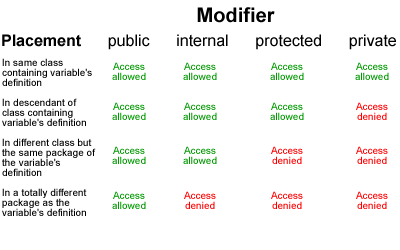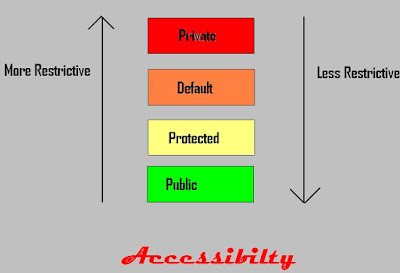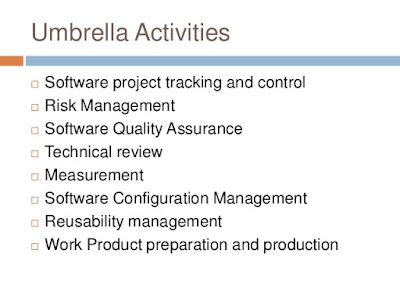Java Modifiers
In the Java
it is possible to modify classes, methods, etc., by using modifiers. There are two
categories of modifiers:
1. Access Modifiers: default, public , protected, private
1. Access Modifiers: default, public , protected, private
Java provides a number of access
modifiers to set access levels for classes, variables, methods and
constructors.
The four access levels are:
- Visible to the package, the default. No modifiers are needed.
- Visible to the class only (private).
- Visible to the world (public).
- Visible to the package and all subclasses (protected).
Java provides a number of non-access modifiers to achieve many other functionality.
The non-access modifier are of six types:
- The static modifier for creating class methods and variables
- The final modifier for finalizing the implementations of classes, methods, and variables.
- The abstract modifier for creating abstract classes and methods.
- The synchronized and volatile modifiers, which are used for threads.









Very well explained article on java modifiers, as a java beginner its very good to know in detail on java modifiers it will be helpful in clearing all concepts as you have shared very useful and insightful article here. Thanks a lot!
ReplyDelete